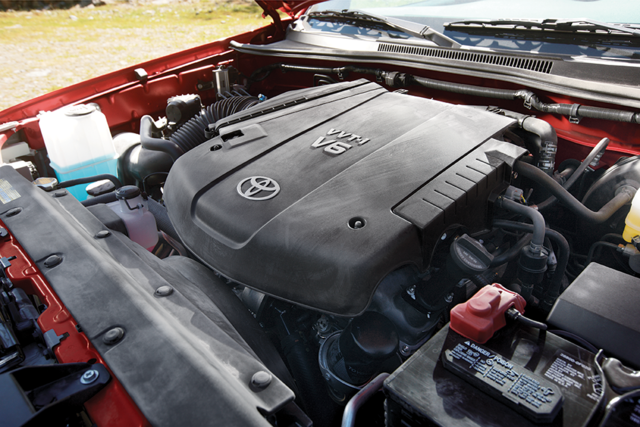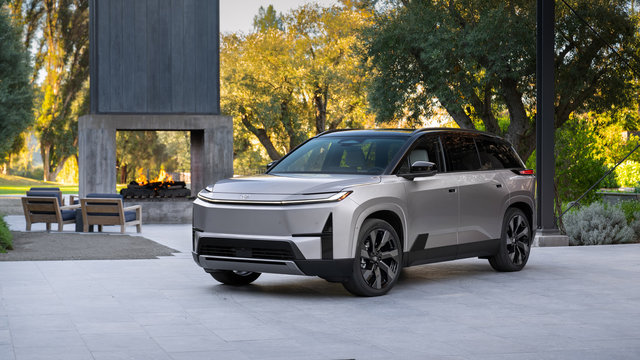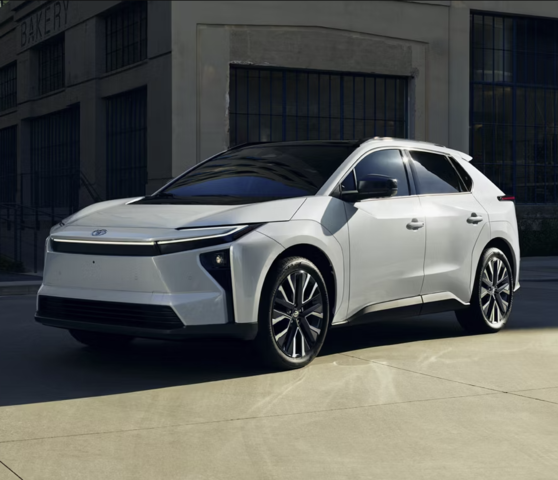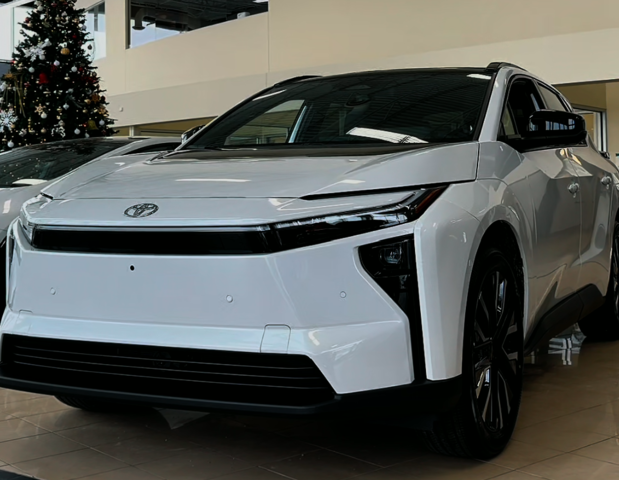The V6 engine offers shoppers an alternative to the norm. By combining the fuel-efficiency expected of a Toyota with an extra helping of refined performance, the V6 engine serves up higher horsepower ratings, as well as a more thrilling and stirring driving experience.
Toyota V6 Engines Deliver More Power
In today’s automotive market, the four-cylinder is one of the most common engines on the road. They can be less expensive to build than larger engines, and weigh less, which helps achieve better fuel economy.
The four-cylinder is also highly fuel efficient, and generates horsepower output that’ll nicely serve the needs of most drivers. But the V6 engine offers more power, torque and refinement.
In many vehicles, a four-cylinder engine is the only engine option. While many shoppers find a four-cylinder engine to be sufficient, this can leave shoppers who want more power and performance out in the cold — and that’s why Toyota offers V6 engines in many of their most popular models including:
Engine Basics
At their core, gasoline engines all work on a very simple principle that involves capturing energy from a rapid and continual sequence of small and controlled explosions, and using that energy to propel the vehicle.
It all happens deep within the engine, in special areas called combustion chambers. A highly combustible mist of gasoline is mixed with air while it is sprayed into the engine’s cylinders, which themselves are cylindrical-shaped openings cast into the engine block.
The flammable air/fuel mixture is then compressed under immense pressure by a piston into the combustion chamber and ignited by a spark plug, which sits in the top of the cylinder. This triggers an explosion, which drives the piston downwards — and with incredible force. That force is transmitted through various parts of the engine, and to the transmission, and ultimately, to the vehicle’s wheels.
These explosions occur many times per second, within each of the engine’s cylinders, at all times while the engine is running.
Cylinders and Horsepower
Horsepower is used to express the power output, or potency, of an engine. Horsepower is the amount of force an engine can produce. Horsepower ratings give the shopper a tool for comparing one engine to another, providing a glimpse at an engine's capabilities by way of a simple number.
An economy car typically has between 140 and 180 horsepower. A common family crossover typically has between 200 and 275 horsepower. High-performance cars, like the upcoming Toyota Supra, may have 300 or more.
The horsepower output of an engine is subject to many factors, including how many cylinders that engine has and how big those cylinders are.
The Toyota V6 Engine
What makes the V6 engine special? First, it’s got two more cylinders than a conventional four-cylinder engine, or six in total. More cylinders mean more explosions can occur within the engine, which means more horsepower can be generated.
A V6 works like a pair of three-cylinder engines joined together in a V-like shape. That’s where the ‘V’ in V6 comes from. The 6 represents the number of cylinders.
Further, the unique design of a V6 engine allows more cylinders to fit into a smaller space. Here’s an illustration: Imagine a supper table just big enough to seat four people in a single row, side by side. Then, imagine a supper table with room for six people — three on each side.
Though the six-person table holds more people, the table itself can be physically shorter, since the six occupants are arranged on both sides of the table, in two rows of three.
The design of a V6 is also inherently smooth, as the vibrations caused by the motion of the pistons within one side of the engine are cancelled out by the vibrations caused by the motion of the pistons on the other. Other benefits include a unique and pleasing sound from the engine when it’s driven spiritedly, and enhanced low-end torque.
Toyota Technology for Optimal V6 Fuel Efficiency
The more horsepower an engine makes, the more fuel it uses — though a suite of proven fuel-saving technologies comes included within most V6 engines to help keep fuel consumption in check.
Most Toyota V6 engines utilize features like D4-S fuel injection and variable valve timing, paired with powerful fuel saving benefits of Atkinson-cycle ability, which helps the engine expertly meter available power against driver demands. This ensures thrilling performance when desired, while minimizing fuel use during gentle driving.
For many owners, the V6 engine achieves similar fuel economy to a four-cylinder engine overall, though on-demand performance capabilities are dramatically enhanced. The V6 engine is highly fuel-efficient, but gives the discerning driver access to a much higher level of performance whenever desired.
Toyota Vehicles with V6 Engines
Horsepower output ranges slightly between specific models, though access to between 295 and 301 horsepower from the Avalon and Camry V6 engines gives drivers about 100 more horsepower than comparable four-cylinder models.
The V6 engine available in the Toyota 4RUNNER is a larger 4.0-litre unit built with specific enhancements to increase performance and long-term durability during hard use. The Tacoma’s 3.5L engine was awarded with the Best New Innovation Technology award from the Automobile Journalists Association of Canada in 2016.
Finally, the unique Toyota Highlander Hybrid teams up a special version of the Toyota 3.5 litre V6 with Toyota’s Hybrid Synergy Drive system for 295 available horsepower, alongside exceptionally low fuel consumption. The Highlander Hybrid is the only Toyota hybrid with a V6 engine, and it gives shoppers a truly unique driving experience that maximizes both performance and efficiency like nothing else in the segment.
With a V6 engine on board, drivers can expect enhanced smoothness from their Toyota, as well as added confidence while towing, merging, passing, or tackling challenging trails.





